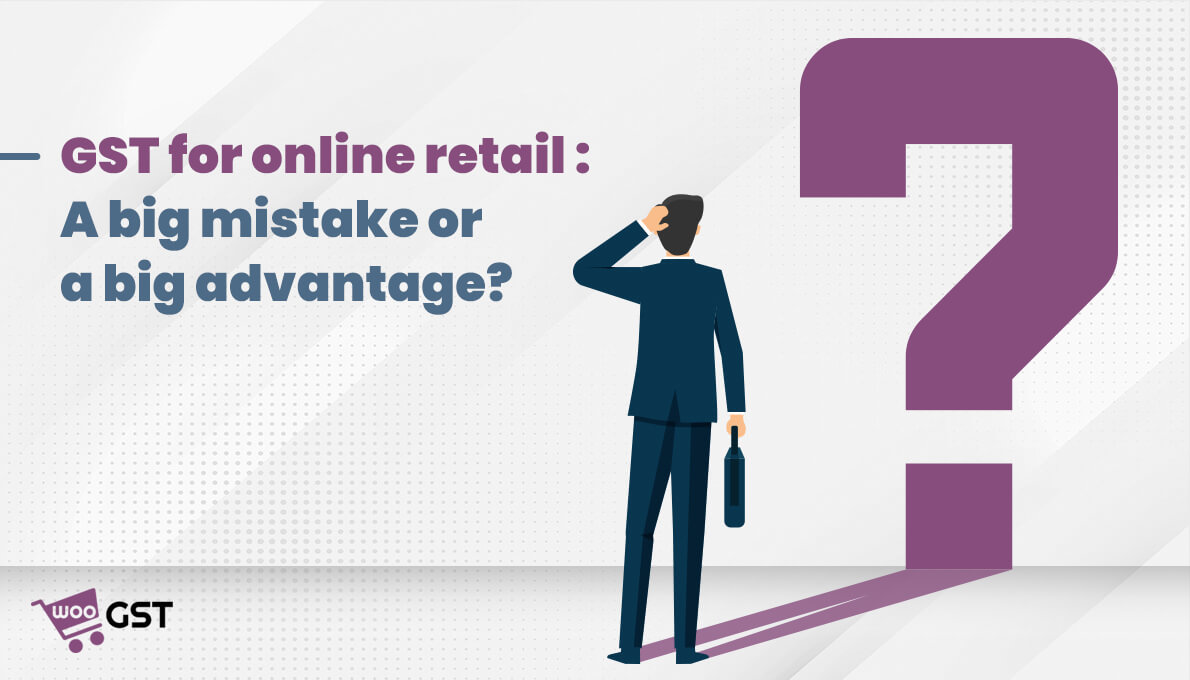
GST, or Goods and Services Tax, is a consumption-based tax that is used in many countries, including India. And in the context of Indian taxation, it is the most important reform.
There is disagreement about GST Registration for E-commerce. While some may view it as a mistake, others may see it as a significant advantage.
In order to determine if it is a mistake or a benefit, we will explore all sides of the debate in this blog.
Let’s discuss the advantages of GST for online retail
If we discuss this according to the retailer’s point of view there are a number of benefits of implementing GST. Here are some of the benefits of GST registration in India.
-
Reduced the taxes
It is one of the major benefits of implementing GST. Retailers’ tax burden will decrease when they pay additional taxes such as CAT, CST, and service tax. GST simplifies everything into a single tax, making it easier for retailers to pay tax all at once and to comprehend the taxation procedure.
-
Enhanced Supply Chain Efficiency
Retailers can operate in all states with a single warehouse and a single GST registration, which lowers their costs. Transportation companies move goods between states, which is made simpler by a GST. Due to more open interstate borders, the lead time for shipping the items will also be shorter. Among the major benefits of GST to the industry is that it will make its operations more productive.
-
Retail Market Growth
The GST unifies federal and state taxes and gets rid of all taxing ambiguity in various markets. This will result in market unification. One of the GST benefits for businesses is they can quickly grow their businesses outside of their local area because they just need to register once to sell throughout the entire state.
-
Increases revenue for the government
The government would get more money as a result of a GST on internet sales, which is another argument in favor of it. Due to the present GST exclusions for e-commerce businesses, as online retail expands, the government is missing out on substantial sums of money. The government would be able to raise more revenue through the implementation of GST for online retail, which could then be used to pay for infrastructure and public services.
Let’s have look at the disadvantages of GST For online retail
-
Higher consumer price
Another issue is the possibility of higher consumer pricing as a result of the GST for online retail. GST would have to be added to products sold by online merchants, raising prices for customers. As a result, there may be less demand for online goods, which would be detrimental to both consumers and online sellers.
-
Penalties may apply if you are not GST compliant
Small and medium-sized businesses might not be able to understand the subtleties of the GST tax system. They have a GST-compliant invoice, are digital record-keeping compliant, and of course, file returns on time. This means that a GST-compliant invoice must include all pertinent information, including the GSTIN and the location of the supply, among others.
You may handle your online store’s invoices using WooGST. You can personalize an invoice by adding the GSTIN number, location, and other information. This will make it easier for all businesses to send their client’s GST-compliant invoices. It has a built-in invoice feature with the calculation of tax slab it will autogenerate invoices for every purchase.
The complexity of adhering to tax regulations in numerous states, the expense of registering and submitting GST returns, and the potential for greater competition from larger sellers who are more adept at navigating the GST system are some drawbacks of GST for online retailers. Small sellers may also find it difficult to keep up with the time-consuming and expensive paperwork and administrative requirements of GST compliance.
GST has generally been a mixed blessing for the online retail sector. For small and medium-sized businesses it has increased complexity and compliance requirements, but it has also helped level the playing field and increase market openness. Each company must assess the benefits and drawbacks to determine whether the GST is a major error or a major advantage for its online retail business.
Additionally, it’s crucial to remember that the GST Council is continually working to simplify the process, lower the compliance burden, boost the benefits of GST for small businesses, and make it easier for small businesses to comply with GST law.
All Rights Reserved. © 2023